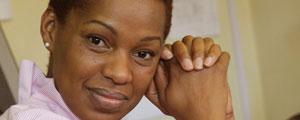
While watching the Oprah show with my mother one day, she remarked how she had heard that Oprah was one of the richest women in the world.
Opinion by Thembe Sachikonye
When I replied in the affirmative, she then, with a very puzzled expression on her face asked: “But what does she do to become so rich? What is her profession?” Even as I told her that Oprah was a journalist, I had to admit to myself that my answer was less than satisfactory.
The truth is that Oprah probably made her fortune as much from being a celebrity as from being a journalist. And that begs the question, what, in fact, is a celebrity?
Because I love language and tend to think in terms of root words, it seemed logical to me that a celebrity should be someone who has done or achieved something for which they should be celebrated.
But when I think of the likes of Kim Kardashian, I have to wonder whether the achievement portion of that definition remains valid.
When I looked up definitions for celebrity, I found Wikipedia very helpful: A celebrity is a person who has a prominent profile and commands a great degree of public fascination and influence in day-to-day media.
The term is synonymous with wealth (commonly denoted as a person with fame and fortune), implied with great popular appeal, prominence in a particular field, and is easily recognised by the general public.(www.wikipedia.com).
- Chamisa under fire over US$120K donation
- Mavhunga puts DeMbare into Chibuku quarterfinals
- Pension funds bet on Cabora Bassa oilfields
- Councils defy govt fire tender directive
Keep Reading
Wikipedia went on to explain that while people may gain celebrity status as a result of a successful career in a particular field, others simply become celebrities because of the amount of attention the media lavishes on them.
The worst thing about celebrityhood for me is that the person doesn’t have to be useful to anyone else in any way whatsoever.
That’s a tragic waste of resources. With this in mind then, I guess one can begin to understand how the likes of Paris Hilton and Lady Gaga can become famous simply for being famous.
So how does a celebrity differ from a public figure? Why do we have such high expectations of the people we call public figures, to the point where we want them to resign when their misdemeanours — which usually don’t affect us at all — are made public.
Yet we relish the misdemeanours of celebrities, secretly hoping they will do something even more outrageous in the next episode of our tenuous contact with them.
Zimbabwe is not immune to the influence of a largely westernised pop culture. We too have those we call celebrities though I think most of our “famous for being famous” celebrities actually do have a talent or two that is cause for celebration.
Headlining stripper Bev (see, she doesn’t even need a surname any more — a true mark of celebrityhood) and sensuous dancer Sandra Ndebele may not be your cup of tea, but you have to admit they have skills that you and I might be hardpressed to demonstrate and are, therefore, in their own way due a measure of celebrity.
But what about those who do remarkable and useful things that no one ever gets to hear about? This evening we will hold the second annual NewsDay People’s Choice Awards ceremony, a project that celebrates the unsung heroes in Zimbabwe.
These are ordinary people doing extraordinary things that help others.
A most fitting guest of honour for this event is Graca Machel, former First Lady of Mozambique and now wife South Africa’s first President Nelson Mandela.
Now here is a woman worth celebrating! And no, it’s not because she has married two significant African presidents (though that in itself is significant whether you like it or not. After all, how many presidents have you married?).
She is worth celebrating because her track record of advocacy for women and children’s rights spans many decades, because she epitomises, for me (and I am sure for thousands of other African women), the essence of gracious, dignified and smart woman power.
To achieve an increase in primary school enrolment from 40% of children in 1975 to over 90% of boys and 75% of girls by 1989 as she did while she was Education minister in Mozambique is truly remarkable. Her groundbreaking report to the United Nations (UN) on the impact of armed conflict on children established a new and innovative agenda for the comprehensive protection of children caught up in war, changing the policy and practice of governments, UN agencies, and international and national civil society. (www.thecommonwealth.org)
To impact the lives of women and children, affect governments, change nations and do all of this without courting cheap publicity or turning oneself into a spectacle, is to live a useful powerful life.
I would rather do that than be a celebrity.
Thembe Khumalo Sachikonye writes in her personal capacity.
Readers’ comments can be sent to [email protected]. Follow Thembe on Twitter www.twitter/localdrummer or visit her facebook page www.facebook.com/pages/local-drummer











